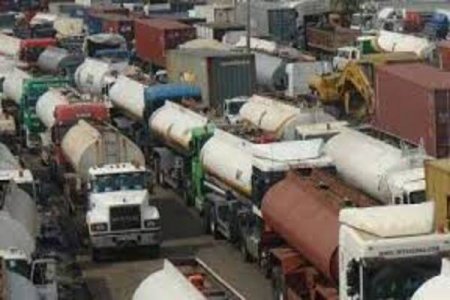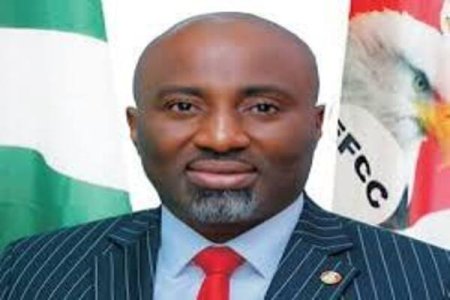
In a critical juncture for Nigeria's transport and energy sectors, the much-anticipated meeting between the Federal Government (FG), the Nigerian Association of Road Transport Owners (NARTO), and key stakeholders concluded on Monday without a consensus, exacerbating fears of an impending fuel scarcity nationwide.
The meeting, convened by the government in response to the suspension of operations by tanker drivers, aimed to address the mounting economic challenges gripping the nation. However, despite efforts to broker an agreement, the parties involved failed to resolve.
Minister of State for Petroleum, Heineken Lokpobiri, underscored the government's commitment to alleviating the plight of Nigerians amidst the prevailing economic hardships. "We cannot stand idly by while our citizens endure further hardship," stated Lokpobiri, signaling the government's determination to find viable solutions.
Amidst the deadlock, there remains a glimmer of hope as the government pledges to continue engagements on Tuesday, demonstrating a proactive approach to tackling the crisis head-on. The administration, led by Tinubu, is actively working to mitigate the adverse effects of the economic downturn, signaling its responsiveness to the needs of the populace.
However, concerns persist as NARTO members, alongside other stakeholders in the oil and gas sector, are set to convene with National Security Adviser Nuhu Ribadu for further deliberations later on Monday. The urgency of these discussions cannot be overstated, as the looming threat of nationwide fuel scarcity looms large.
The catalyst for the tanker drivers' strike stems from the exorbitant cost of Automotive Gas Oil (diesel), essential for powering their trucks in transporting petroleum products across the country. With diesel prices skyrocketing, mirroring the steep increase in the cost of Premium Motor Spirit (petrol), the economic strain on both consumers and industry stakeholders has become untenable.
Diesel, now priced above N1,250 per litre, reflects the dire implications of Nigeria's ongoing forex crisis, exacerbating the challenges faced by businesses and consumers alike. The convergence of these factors underscores the pressing need for swift and decisive action to avert further escalation of the crisis.
As Nigerians brace themselves for the potential ramifications of a protracted deadlock, the FG-NARTO impasse underscores the broader socio-economic challenges confronting the nation. With the specter of fuel scarcity looming large, the stakes have never been higher for all stakeholders involved in charting a path towards sustainable solutions.




